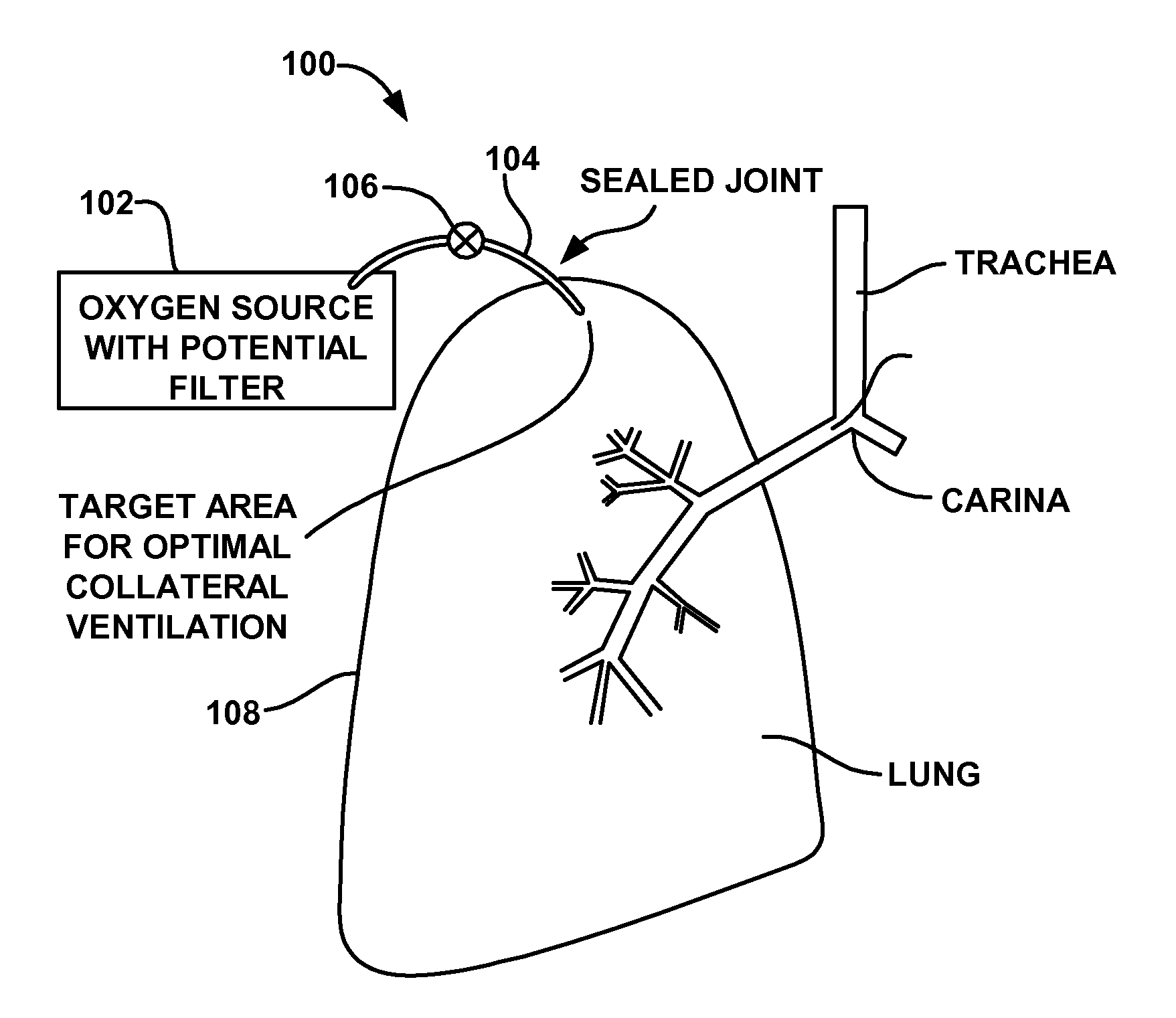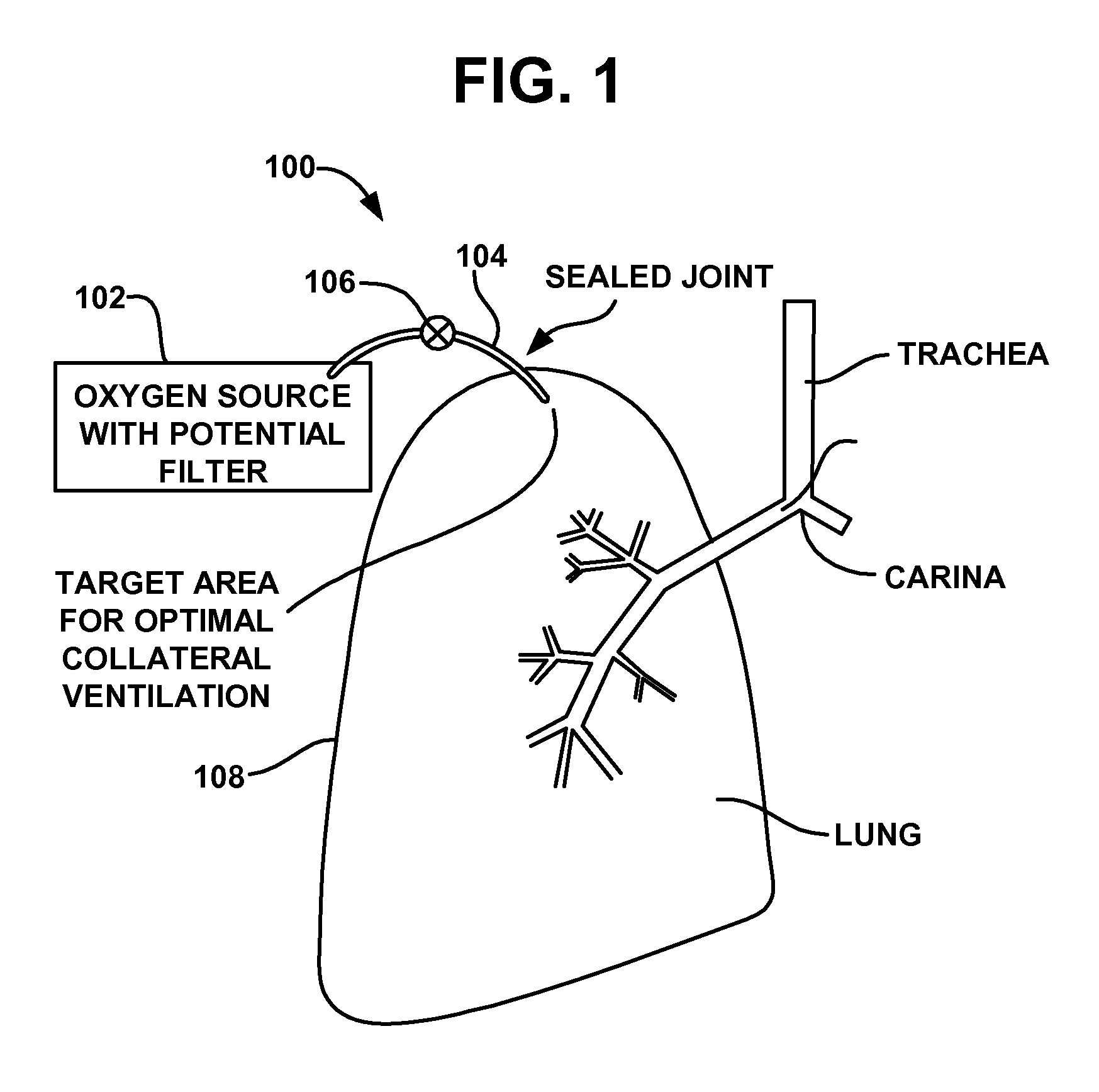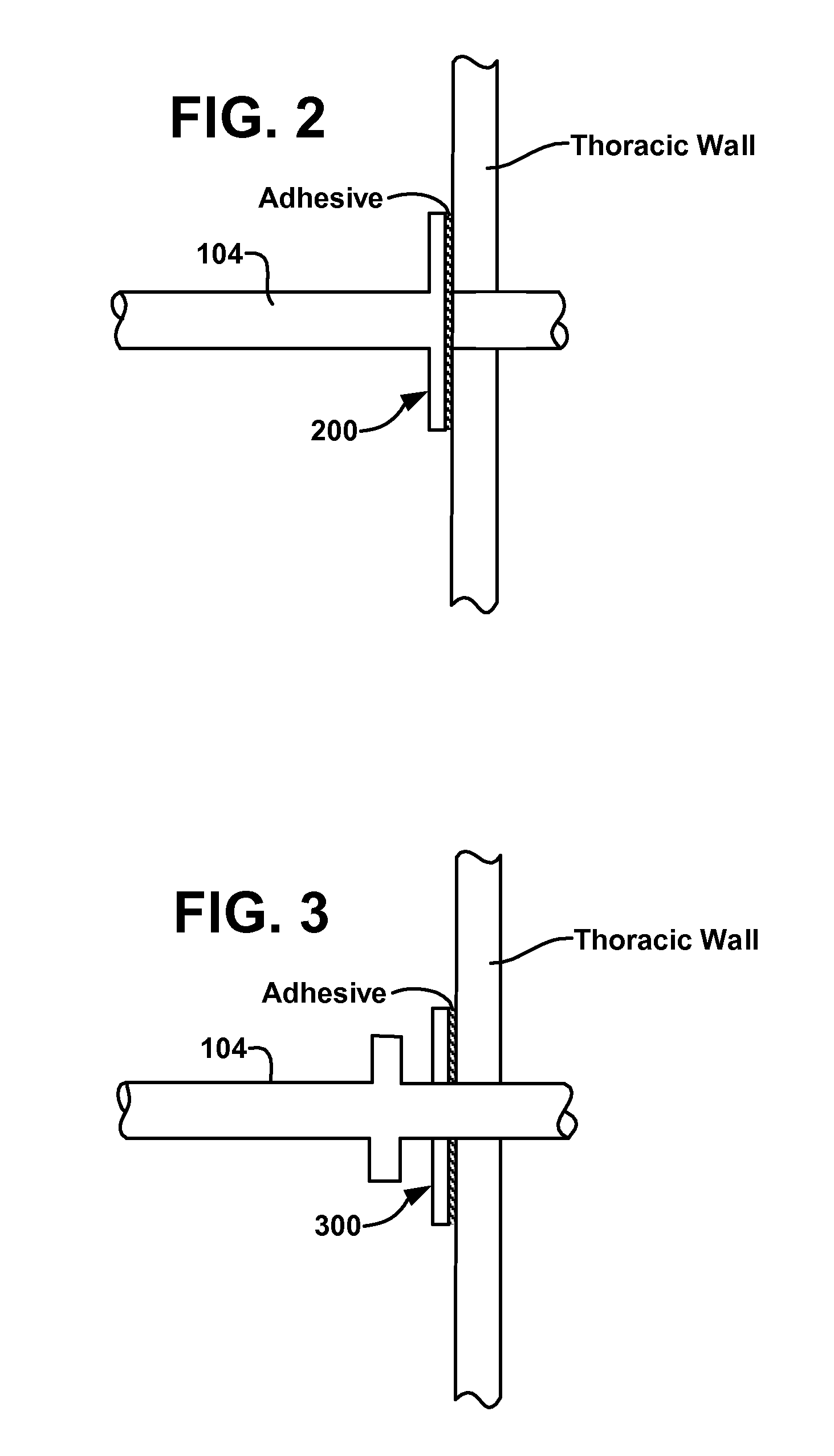Collateral ventilation device with chest tube/evacuation features and method
a ventilation device and chest tube technology, applied in the field of devices for treating diseased lungs, can solve problems such as lung collapse or pneumothorax, and achieve the effect of increasing the expiratory flow and being safely accessibl
- Summary
- Abstract
- Description
- Claims
- Application Information
AI Technical Summary
Benefits of technology
Problems solved by technology
Method used
Image
Examples
Embodiment Construction
[0031]Air typically enters the mammalian body through the nostrils and flows into the nasal cavities. As the air passes through the nostrils and nasal cavities, it is filtered, moistened and raised or lowered to approximately body temperature. The back of the nasal cavities is continuous with the pharynx (throat region); therefore, air may reach the pharynx from the nasal cavities or from the mouth. Accordingly, if equipped, the mammal may breath through its nose or mouth. Generally air from the mouth is not as filtered or temperature regulated as air from the nostrils. The air in the pharynx flows from an opening in the floor of the pharynx and into the larynx (voice box). The epiglottis automatically closes off the larynx during swallowing so that solids and / or liquids enter the esophagus rather than the lower air passageways or airways. From the larynx, the air passes into the trachea, which divides into two branches, referred to as the bronchi. The bronchi are connected to the l...
PUM
 Login to View More
Login to View More Abstract
Description
Claims
Application Information
 Login to View More
Login to View More - R&D
- Intellectual Property
- Life Sciences
- Materials
- Tech Scout
- Unparalleled Data Quality
- Higher Quality Content
- 60% Fewer Hallucinations
Browse by: Latest US Patents, China's latest patents, Technical Efficacy Thesaurus, Application Domain, Technology Topic, Popular Technical Reports.
© 2025 PatSnap. All rights reserved.Legal|Privacy policy|Modern Slavery Act Transparency Statement|Sitemap|About US| Contact US: help@patsnap.com



